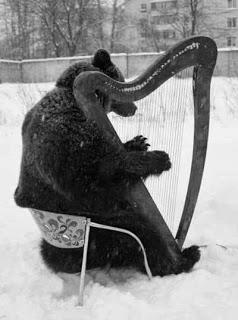
I have quoted from Aymette v. State, 2 Humphreys (Tenn.) in other places, but it makes it clear that the terms "bear arms" means in a military context--Despite what "Fat Tony Scalia" says:
"We think there is a manifest distinction. In the nature of things, if they were not allowed to bear arms openly, they could not bear them in their defence of the state at all. To bear arms in defence of the state is to employ them in war, as arms are usually employed by civilized nations. The arms, consisting of swords, muskets, rifles, etc., must necessarily be borne openly; so that a prohibition to bear them openly would be a denial of the right altogether. And, as in their constitution the right to bear arms in defence of themselves is coupled with the right to bear them in defence of the state, we must understand the expressions as meaning the same thing, and as relating to public, and not private, to the common, and not the individual, defence.
But a prohibition to wear a spear concealed in a cane would in no degree circumscribe the right to bear arms in the defence of the state; for this weapon could in no degree contribute to its defence, and would be worse than useless in an army. And, if, as is above suggested, the wearing arms in defence of the citizens is taken to mean the common defence, the same observations apply.
To make this view of the case still more clear, we may remark that the phrase, "bear arms," is used in the Kentucky constitution as well as in our own, and implies, as has already been suggested, their military use. The 28th section of our bill of rights provides "that no citizen of this state shall be compelled to bear arms provided he will pay in equivalent, to be ascertained by law." Here we know that the phrase has a military sense, and no other; and we must infer that it is used in the same sense in the 26th section, which secures to the citizen the right to bear arms. A man in the pursuit of deer, elk, and buffaloes might carry his rifle every day for forty years, and yet it would never be said of him that he had borne arms; much less could it be said that a private citizen bears arms because he has a dirk or pistol concealed under his clothes, or a spear in a cane. So that, with deference, we think the argument of the court in the case referred to, even upon the question it has debated, is defective and inconclusive.
In the case of Simpson v. The State, 5 Yerg. 356, Judge White, in delivering the opinion of the court, makes use of the general expression that, " by this clause in the constitution, an express power is given and secured to all the free citizens in the state to keep and bear arms for their defence, without any qualification whatever as to their kind and nature."
